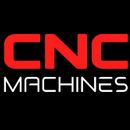How to Find the Right Machine Shop Near Me?

How to Find the Right Machine Shop Near Me?
Finding the right machine shop near you is crucial for ensuring that your manufacturing needs are met with precision, quality, and efficiency. Whether you need custom parts, repairs, or large-scale production, selecting a reliable and skilled machine shop can make all the difference. This article will guide you through the steps to find the right machine shop near you, including what to look for, how to evaluate potential shops, and tips for making the best choice.
1. Understand Your Specific Needs
Before you start searching for a machine shop, it’s essential to have a clear understanding of your specific needs. Consider the following:
- Type of Work: Are you looking for CNC machining, milling, turning, or welding services? Knowing the exact type of machining you need will help narrow down your options.
- Materials: What materials will the machine shop need to work with? Different shops specialize in different materials, such as metals, plastics, or composites.
- Volume: Are you looking for a one-time project, prototyping, or ongoing production? Some shops are better suited for small custom jobs, while others are equipped for high-volume production.
- Precision and Tolerances: What level of precision and tolerance does your project require? High-precision work requires advanced machinery and skilled operators.
2. Start with an Online Search
The internet is a powerful tool for finding machine shops near you. Here’s how to start your search:
- Google Search: Simply type "machine shop near me" into Google. This will provide you with a list of nearby shops along with their ratings, reviews, and contact information.
- Online Directories: Use online directories like Machine Shops, or Yelp to find machine shops in your area. These platforms often provide detailed profiles, including the services offered, certifications, and customer reviews.
- Industry Forums and Groups: Join industry-specific forums or LinkedIn groups where you can ask for recommendations from peers who may have experience with local machine shops.
3. Evaluate the Machine Shops
Once you have a list of potential machine shops, it’s time to evaluate them. Here are the key factors to consider:
Quality and Precision
- Equipment and Technology: Check if the machine shop has the latest CNC machines and equipment capable of meeting your project’s precision requirements. Modern machinery ensures better accuracy and efficiency.
- Certifications: Look for shops that have certifications like ISO 9001, which indicate a commitment to quality management systems.
- Portfolio and Case Studies: Ask for examples of previous work or case studies that demonstrate their ability to handle projects similar to yours.
Experience and Expertise
- Industry Experience: Consider how long the shop has been in business and whether they have experience in your specific industry. A shop with experience in your field is more likely to understand your needs and deliver better results.
- Skilled Workforce: Inquire about the qualifications and experience of the machinists and engineers. A skilled workforce is crucial for achieving high-quality outcomes.
Customer Service and Communication
- Responsiveness: Evaluate how quickly and effectively the shop responds to inquiries. Good communication is essential for ensuring that your project runs smoothly.
- Transparency: The shop should be transparent about costs, timelines, and potential challenges. Avoid shops that are vague or hesitant to provide detailed information.
Turnaround Time
- Lead Times: Ask about the shop’s typical lead times and whether they can meet your project’s deadlines. Reliable shops will provide realistic timelines and stick to them.
- Flexibility: Consider whether the shop can accommodate rush orders or changes in your project scope. Flexibility is important, especially for time-sensitive projects.
Cost and Value
- Pricing: Get quotes from multiple shops and compare their pricing. However, don’t just go for the cheapest option—consider the value offered, including quality, precision, and customer service.
- Value-Added Services: Some shops offer additional services such as design assistance, prototyping, or finishing processes. These value-added services can save you time and money in the long run.
4. Visit the Machine Shop
If possible, visit the machine shop in person to get a better sense of their operations. During your visit:
- Tour the Facility: Observe the cleanliness and organization of the shop. A well-maintained facility is often a sign of professionalism and attention to detail.
- Meet the Team: Talk to the machinists and engineers who will be working on your project. Discuss your needs and expectations to ensure they understand your requirements.
- Inspect the Equipment: Check the condition of the machines and tools. Modern, well-maintained equipment is essential for producing high-quality parts.
5. Check References and Reviews
Before making a final decision, check references and reviews from previous clients. Look for testimonials that highlight the shop’s strengths and any potential weaknesses. You can also ask the shop for references from clients who had similar projects.
6. Finalize the Agreement
Once you’ve chosen a machine shop, it’s time to finalize the agreement. Make sure to:
- Clarify the Scope of Work: Ensure that both parties have a clear understanding of the project scope, including materials, tolerances, timelines, and costs.
- Set Expectations: Discuss expectations for communication, progress updates, and quality checks throughout the project.
- Sign a Contract: A formal contract should outline all terms and conditions, including payment schedules, delivery dates, and any warranties or guarantees.
Conclusion
Finding the right machine shop near you involves careful research, evaluation, and communication. By following these steps, you can select a shop that meets your specific needs, ensuring that your project is completed with precision, quality, and efficiency. Whether you’re looking for a one-off custom part or ongoing production, the right machine shop can make all the difference in achieving your manufacturing goals.


